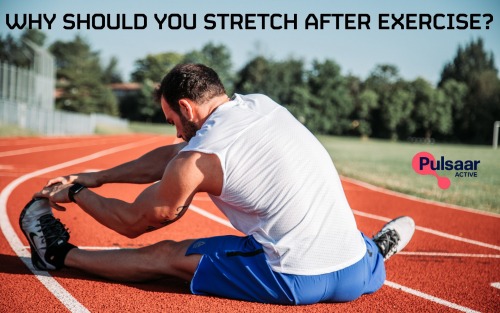Our lifestyle changed during the second half of the 20th century, aggravating several health problems. The cause was often simple: lack of regular physical activity or sedentary lifestyle. Since 1950s, researchers have explained and warned that a sedentary lifestyle would result in at least two-fold increase in the risk of morbidity and mortality from some diseases. This is a topical problem in Latvia, and in other European countries where many spend most of the day sitting: in offices, in front of a TV or a computer, in our car to or from work.
Though overweight children, adolescents, and the elderly were not previously a problem, things have changed. Lack of regular physical activity affects not only our looks, but also our health and well-being. Sedentary lifestyle is one of the main reasons for various daily pains and aches, ill temper, and never-ending fatigue.
Starting is the most important
There are two types of people: some that get used to emotional and physical discomfort, and cope with various head, back and other pains and aches, eventually coming to terms with them, while others love and think that being active is important, knowing how great it feels when nothing aches. Nowadays, many people have gotten used to pain and discomfort and believe this to be normal. However, this should not be the case! Of course, it is difficult to start being active, but it really motivates you when you feel the results. Physical activity improves life quality and increases life expectancy. It should become an integral part and not just an extra in your life.
Do what you like!
A person shouldn’t focus on just one sport like running or aerobics just because it’s trendy. Choose sports that give you joy to avoid a negative effect or discomfort due to physical activity. At the beginning, avoid strenuous activity. Start gradually. Furthermore, if you have any problems, for example, joint pain, high blood pressure, consult a physiotherapist, family doctor or qualified, professional instructor. If you are new to physical activity, don’t start doing something alone or by relying on the experience of others. Everyone should be assessed individually. Some should focus on balance and coordination, while others on endurance.
Set goals!
If you have decided to start being active, understand why you do something: to improve your health, physical shape, or fitness, or another reason. Note that the goal allows you to stay focused, as there are many temptations to not do it. Sedentary lifestyle is the key factor that undermines and weakens health. Physical activity is of fundamental importance to improve not only health, but also well-being. In my thesis, I have demonstrated that cycling, skiing, and Nordic walking reduce anger, aggression, and fear, as well as elevate blood beta endorphins (happiness and well-being hormones), and bring joy. The study was conducted in middle-aged people; in this group, cardiovascular diseases are the main cause of death.
Everyone should be active
We often hear: why should people who are not overweight, have good genetics and who can eat as much as they wish but still not gain weight be physically active? The answer is simple: everyone should be active irrespective of their weight, health, age, or other factors. Genetics are also important. Up to a certain age, everything will be fine, but then pain, discomfort, and various diseases may appear. Everyone should be active daily. Look at small children: they move around all the time, and they do not have any back or joint pain. People are born to move, but the modern urban environment puts us in “boxes”: home, work, car, etc. making us move less.
Children learn from parents
Insufficient physical activity during childhood can have a lifelong negative health impact. Globally, children have become less active, particularly in poorer areas. Time and resources invested in teaching sports become ever smaller, and physically active games and recreation give way to computer games and TV. Remember: if parents don’t move, children probably won’t either. Remember that regular and proper physical activity during childhood is a good foundation for lifelong health. Parents should be physically active to take care not only of their own health, but also their children’s health.
Dr. Sp.sc. Ieva Zvīgule
Certified Physiotherapist
Vingrosev.lv



